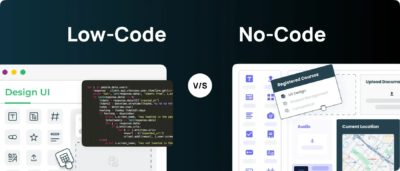Understanding Cybersecurity in the Gaming Industry

Over the last two decades, the online gaming industry has experienced significant growth, transitioning from a niche pastime to a multibillion-dollar global entertainment phenomenon. Unfortunately, with this growth comes a surge in cybersecurity threats.
As more gamers venture online, the risk of security breaches and cyberattacks also rises. From threats to gaming integrity and fraud to theft of personal data, the gaming industry must be diligent in protecting its consumers and assets.

Although the igaming sector in the US should not be a concern especially if you live in Montana. The state has yet to legalize online gambling. You must visit a physical casino to place a wager. Click here for more information about gambling regulations in the US.
This post explores some of the most common cybersecurity threats in the gaming industry. You will also learn how these threats will impact the gaming industry and how developers and gamers can protect themselves. So, without further ado, let’s get cracking!
What Are the Common Cyber Attacks in the Gaming Industry?
The online gaming industry is a hotspot for cybercriminals because of its massive popularity and sizable user base, which includes some of the world’s most tech-savvy people.

Here are some of the most common cyberattacks the gaming sector faces:
- Distributed Denial of Service (DDoS) Attacks
DDoS are attacks meant to manipulate or halt gameplay arrogantly to exhibit control and dominance over other players. These attacks can jeopardize players’ privacy, damage a company’s image, and result in large financial losses as they lock out legitimate users.
- Phishing Attacks
Phishing attacks involve cybercriminals using fraudulent emails and login pages to deceive players into disclosing their financial information, login credentials, and other personal data.
These attacks are often complex and hard to detect. As such, players should be wary of unsolicited messages or emails requesting financial or personal information.
- Social Engineering Attacks
Social engineering attacks mainly target teenage gamers with little understanding of online threats. These attacks can take various forms, such as phony support calls or emails that coerce players into disclosing confidential information or acting in ways that can compromise themselves or their accounts.
- In-Game Cheats and Mods
A game mod is a game hack that incorporates cheating software into the game. Although this can affect any game, it is more common in small compact game clients such as mobile games. It is also rather frequent in Windows PC games.
Mods are more sophisticated as they need one to understand not only programming language, but also compilers and machine code. Users can purchase mods to give them an edge in the game, which may eventually frustrate legitimate players, especially in multiplayer online games.
What is the Impact of Cybersecurity Threats on the Gaming Industry?
The cybersecurity concerns in the gaming sector will undeniably have a substantial impact.
With the rising sophistication and frequency of cyberattacks, online gaming firms risk losing their players’ trust and ruining their brands. Cyber-attacks can also lead to financial losses caused by data breaches and the loss of sensitive information.
Cybercriminals’ tactics will likely become more sophisticated as the gaming sector expands. For this reason, developers must step up their efforts to stop cyberattacks and safeguard user data. Failure to do so may have major ramifications for both the companies and the gaming industry as a whole.
However, the impact of cybersecurity issues extends beyond gaming companies. As the gaming industry becomes increasingly integrated with other sectors, such as esports, and virtual reality, cybersecurity threats will affect more than individual enterprises.
What Strategies Can Developers Use to Mitigate Cybersecurity Risks?
Online gaming developers and companies are responsible for safeguarding their users’ data from cyber threats. Some of the best strategies they can use to mitigate these cybersecurity threats include:
- Perform regular security audits to spot possible vulnerabilities in their systems. This helps them remain proactive in preventing attacks.
- Incorporate strong authentication procedures to avoid unauthorized access to user accounts.
- Encrypt customer data to keep fraudsters from intercepting and exploiting it.
- Foster a culture of cybersecurity by creating awareness programs and training for employees and ensuring that cybersecurity is a priority across all levels of the firm.
The Role of User Awareness
Although online gaming firms must safeguard user data from cyberattacks, players must also play a key role in safeguarding their accounts.
To begin with, players should know how to identify and avoid phishing attacks. One should avoid downloading attachments or clicking links from unidentified sources and always confirm the legitimacy of any information request.
Moreover, gamers should take proactive measures to secure their accounts. These measures include anything from using strong, authentic passwords to allowing two-factor authentication and updating antivirus software.
Another crucial element of user awareness is recognizing and reporting questionable activities. Players should regularly monitor their accounts for unusual behavior or unauthorized access and notify the online gaming firm of potential security breaches.
Wrapping Up
Thanks to its rapid growth and growing popularity, the gaming industry has become a prime target for cybercriminals seeking to exploit areas of weakness. Therefore, it is important for both gaming companies and players to protect themselves from online threats.
At the end of the day, individuals engage in gaming for fun. Should it pose a risk to their finances and reputation, they might as well seek other, more secure forms of entertainment.
Alexia is the author at Research Snipers covering all technology news including Google, Apple, Android, Xiaomi, Huawei, Samsung News, and More.












